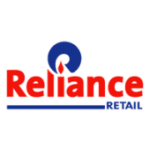Unicorn companies may not be the fantasy creatures of your childhood dreams, but they do have a similar allure. These remarkable startups represent the embodiment of entrepreneurial aspirations in the modern tech-driven economy.
But what exactly are unicorn companies, and why do they capture our imagination? Here’s a definition and overview of unicorn companies – along with examples of the top unicorns today.
What is a unicorn company?
A unicorn company is a privately held startup or tech firm that boasts an exceptional and somewhat rare attribute — a valuation of over $1 billion. This financial milestone elevates these companies in the eyes of investors, entrepreneurs and the general public, as only a select few manage to attain such high valuations before going public or being acquired.
While the term “unicorn” was not coined until more recently, the idea of startups achieving staggering valuations has been around for decades. Companies like Amazon and Google, although not labeled as unicorns at the time, demonstrated the potential for startups to reach valuation heights that were previously considered unattainable.
The unicorn phenomenon gained prominence in the early 2010s, primarily due to the proliferation of technology startups and the infusion of venture capital. Companies like Uber, Airbnb and Dropbox rapidly ascended to billion-dollar valuations and became some of the most famous among the early unicorns in the U.S.
Since then, unicorn companies have become a global phenomenon. What distinguishes them from the broader startup landscape is not only their extraordinary valuation, but also their rapid growth, innovative business models and scalability. They’re often characterized by their ability to disrupt traditional markets, leveraging technology and unique ideas to achieve high potential for expansion and global reach.
Characteristics of unicorn companies
There are several key attributes that give a company unicorn status, including:
- High valuation: The most salient characteristic of a unicorn company is its valuation exceeding the $1 billion threshold. This high financial status is typically attained through a series of funding rounds, predominantly led by venture capitalists, which reflects the strong confidence and investment interest in the company.
- Rapid growth: Unicorns exhibit a unique capacity for rapid and exponential growth. Their expansion is not incremental but, instead, is characterized by an aggressive and accelerated trajectory, enabling them to expand their market presence swiftly.
- Innovation: At the heart of unicorn companies lies a commitment to innovation. They are known for introducing fresh and disruptive ideas into their respective industries, often leveraging cutting-edge technologies and pioneering novel business models. This means they have the potential to reshape traditional markets.
- Scalability: Unicorn companies possess the unique ability to scale their operations efficiently. Their business models, in fact, are designed for scalability, allowing them to reach a global audience and capture substantial market share without proportionate increases in costs.
Unicorn company examples
We’ve used best-in-class company data from Crunchbase to create a comprehensive list of unicorn companies. This list is updated real-time as companies achieve valuations of $1 billion or higher with fresh funding.
Some of the most valued companies on the list, starting at the top, include:
- ByteDance
- AntGroup
- SpaceX
- Reliance Retail
- Shein
- Reliance Jio
- Stripe
- Databricks
- Checkout.com
- Revolut
1. ByteDance


Valuation: $220B
Totally equity funding: $8B
ByteDance is a Chinese tech company famous for creating TikTok, a hugely popular short-form video-sharing app. Founded in 2012, ByteDance has also developed other apps like Toutiao, contributing to its status as one of the world’s most valuable tech startups.
2. AntGroup


Valuation: $150B
Totally equity funding: $19B
Ant Group is a Chinese fintech company affiliated with Alibaba Group, offering a wide range of financial services, including the popular mobile payment platform Alipay. It has also expanded into digital banking, lending, insurance and more.
3. SpaceX


Valuation: $125B
Totally equity funding: $9B
SpaceX, officially known as Space Exploration Technologies Corp., is an American aerospace manufacturer and space transportation company founded by Elon Musk in 2002. The company is known for its ambitious goal of reducing space transportation costs and enabling the colonization of Mars.
4. Reliance Retail


Valuation: $100B
Totally equity funding: $8B
Reliance Retail is a subsidiary of Reliance Industries, one of India’s largest conglomerates. It is a prominent retail and e-commerce company operating a wide range of businesses, including grocery stores, electronics and fashion.
5. Shein


Valuation: $66B
Totally equity funding: $4B
Shein is a Chinese e-commerce platform specializing in fast fashion. Shein is known for its vast product selection and its ability to quickly adapt to the latest fashion trends, which has led to its popularity among online shoppers worldwide.
6. Reliance Jio


Valuation: $58B
Totally equity funding: $20B
Officially known as Jio Infocomm, Reliance Jio is a telecommunications company in India and a subsidiary of Reliance Industries. Launched in 2016, Jio disrupted the Indian telecom industry by offering affordable 4G data and voice services, leading to widespread adoption and competition in the market. Jio has since expanded its services to include broadband, digital content and other digital offerings.
7. Stripe


Valuation: $50B
Totally equity funding: $9B
Stripe is an American financial technology company founded in 2010. Stripe’s platform simplifies online payments, allowing businesses to accept payments, manage subscriptions, and handle other financial transactions securely.
8. Databricks


Valuation: $43B
Totally equity funding: $4B
Databricks is a California-based technology company founded by the creators of Apache Spark, a popular open-source big data processing framework. The company offers a unified analytics platform that simplifies the management and analysis of large-scale data, making it easier for organizations to extract valuable insights from their data.
9. Checkout.com


Valuation: $40B
Totally equity funding: $2B
Checkout.com is a global fintech company that provides payment processing solutions and services to businesses. It offers a comprehensive platform for online and in-store payments, helping merchants accept payments securely and efficiently while offering various payment methods to customers.
10. Revolut


Valuation: $33B
Totally equity funding: $2B
UK-based financial technology company Revolut offers a range of digital banking services, including mobile banking, currency exchange and cryptocurrency trading. It allows users to manage their finances, make international transactions, and access various financial products through its mobile app.
For even more unicorn companies, take a look at the full unicorn company list. To get a sneak peak at up-and-coming unicorns that are on the path to achieving that coveted status, you can also check out our emerging unicorn list.
What industries are unicorn companies in?
You may have noticed that companies with unicorn status span a diverse range of industries, reflecting the breadth of entrepreneurial innovation. These startups have made the biggest mark in the following sectors:
- Software: Unicorn companies in the software sector include applications, operating systems and cloud-based services. This is a broad group of startups that encompasses everything from marketing automation company Klaviyo to the enterprise communication tool Slack.
- Fintech: The financial technology sector has seen a surge in unicorn companies, with firms like Stripe and Revolut revolutionizing payments, investing and banking services.
- Artificial intelligence: AI-focused unicorns like UiPath and OpenAI are at the forefront of artificial intelligence, transforming industries by enhancing productivity, decision-making and more.
- Information technology: These companies, such as security and systems management platform Tanium, provide IT services ranging from cloud computing and cybersecurity to network infrastructure and enterprise software.
- Science and engineering: Unicorns in this sector develop groundbreaking solutions that further scientific advancement and address pressing global challenges. A well-known example is the aerospace company SpaceX.
- Data and analytics: Data analytics unicorns, such as Databricks, harness the power of big data to derive valuable insights and facilitate data-driven decision-making.
- Internet services: These unicorn startups include online platforms, social networks and content delivery services, such as TikTok parent company ByteDance.
- Commerce: Unicorn companies in the commerce sector range from e-commerce and retail platforms to online marketplaces and delivery services. Shein and Doordash are two well-known examples.
Other industries with unicorns include energy and clean tech, agricultural technology, transportation, healthcare and biotechnology. As you can see, unicorn companies can exist in any industry, so long as they have a high valuation, drive significant innovation, show rapid growth and potential for scalability.
Unicorn valuation and forecasting
So, how, exactly, is this high valuation determined? Forecasting unicorn valuations is a meticulous exercise, where financial metrics, market conditions and investor sentiment converge to determine the company’s worth at various stages of its development. These valuations are not merely a reflection of past performance but a projection of future potential and growth opportunities. Lots of different elements go into forecasting their value, such as:
- Funding rounds: Unicorn valuations are, in large part, influenced by a series of funding rounds. These rounds typically begin with seed funding and progress through Series A, B, and beyond. At each stage, the infusion of capital contributes to the company’s growth and development. The valuation at each funding round is based on the company’s performance, potential market reach and investor interest, with subsequent rounds reflecting increasing confidence and value.
- Venture capital assessment: Venture capitalists play a crucial role in assessing the valuation of unicorn companies. They bring a wealth of experience and expertise to the table, performing thorough due diligence to evaluate the company’s growth prospects, competitive advantages and market opportunities. This assessment informs the valuation, often reflecting the perceived risk and reward potential. Notably, venture capital investors rely on financial models, market analysis and competitive positioning to gauge the company’s worth.
- IPO valuation: Unicorn companies preparing to go public undergo a rigorous valuation process. This process includes collaboration with investment banks and financial experts who analyze the company’s financial statements, business model, market conditions, and investor sentiment. The IPO valuation seeks to establish a fair market value that aligns with market dynamics and investor demand. The final IPO price reflects a balance between the company’s aspirations and the expectations of public market investors.
What are the exit options for unicorn companies?
Companies with unicorn status, with their exceptional valuations and growth trajectories, often find themselves at a crossroads regarding their future. These companies have several exit options to consider:
- Going public: IPOs are one of the most common exit strategies for unicorn companies. This allows them to raise significant capital, provide liquidity to early investors and employees and gain access to a broader investor base. IPOs also offer enhanced visibility and credibility in the public market.
- Getting acquired: Many unicorn companies are acquired by larger corporations seeking to expand their market presence or access innovative technologies. Acquisitions provide a direct route to exit for founders and investors, while acquirers benefit from the expertise and technologies developed by the unicorn.
- Staying private: Not all unicorn companies rush to go public or seek acquisition. Some choose to remain private, maintaining full control over their operations and strategic direction. Staying private offers flexibility and independence, though it may limit access to additional capital.
Should you invest in a unicorn company?
Unicorns, with valuations exceeding $1 billion, are stand-out entities in today’s business world. These companies have revolutionized how we shop, work, access services and communicate with one another, and they point to new trends in the market landscape.
Investing in a unicorn company isn’t exactly for people interested in casual investing, but it can be a good choice for private investors and venture capitalists. Keep an eye on unicorn startups to monitor their funding and see if they decide to go public. Crunchbase is a helpful tool for staying up-to-date on unicorns in your industry, as it helps you track company financials, monitor their activities, and decide where to invest.




